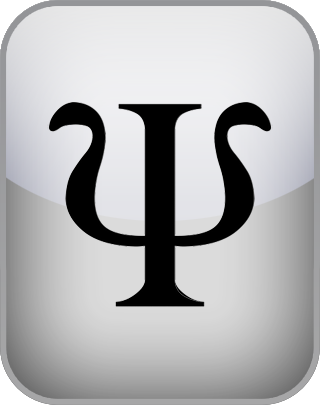ตรวจสอบทางวิชาการโดย ดร. เจนนิเฟอร์ ชูลซ์, Ph.D., รองศาสตราจารย์ด้านจิตวิทยา
แบบทดสอบลักษณะทางบุคลิกภาพ
แบบทดสอบลักษณะทางบุคลิกภาพทั้ง 105 คำถามจะให้คะแนนคุณเกี่ยวกับลักษณะทางบุคลิกภาพทั้ง 15 กลุ่ม โดยเป็นลักษณะทางบุคลิกภาพที่แสดงให้เห็นถึงมุมมองของบุคลิกภาพแบบที่ไม่มั่นคง ซึ่งแตกต่างจากการวัดผลในเชิงโครงสร้างของ แบบทดสอบประเภทบุคลิกภาพของ Jung หรือ แบบทดสอบบุคลิกภาพหลักทั้งห้า
ในการทำแบบทดสอบ เป็นเรื่องธรรมดาที่บุคคลที่เป็นปกติจะรู้สึกว่ามีหลายข้อที่ตรงกับพวกเขา อย่างไรก็ตาม เพื่อให้ได้ผลลัพธ์ที่เหมาะสมที่สุดสำหรับคุณ โปรดอย่าคลิก ‘เห็นด้วย’ ให้กับคำถามใดคำถามหนึ่งหากมันไม่ได้เป็นสิ่งที่เกิดขึ้นในชีวิตของคุณและไม่ได้สอดคล้องกับตัวคุณจริงๆ ถ้าคุณรู้สึกไม่แน่ใจว่าคำถามเหล่านั้นตรงกับตัวคุณ ให้คลิก ‘ไม่เห็นด้วย’
คำถามที่ 1 จาก 105
ฉันมักจะรู้สึกโกรธคนอื่นที่ทำให้ฉันรู้สึกรำคาญอยู่บ่อยๆ แล้วฉันก็มารู้สึกผิดทีหลัง
ย้อนหลัง ต่อไป
"แบบทดสอบลักษณะทางบุคลิกภาพ" เป็นทรัพย์สินของ IDR Labs International ซึ่งต้องขอแสดงความขอบคุณไปยังงานของ Theodore Millon, Seth Grossman, Aaron T. Beck, Arthur Freeman และ Nancy McWilliams
The Personality Style Test, based on the research of Dr. Theodore Millon, is a psychological assessment designed to identify and categorize various personality traits and styles. Millon’s pioneering work in personality theory has provided a comprehensive framework for understanding how individual personalities develop, adapt, and sometimes become maladaptive. His model emphasizes that personality is not static but exists on a continuum, with certain traits manifesting in healthier or more dysfunctional ways depending on life circumstances, coping mechanisms, and other factors.
Dr. Millon’s research is rooted in the idea that personality styles are patterns of thinking, feeling, and behaving that individuals use to interact with the world. Unlike traditional models that focus solely on pathological traits, Millon’s approach recognizes that everyone has a blend of personality characteristics that can be adaptive or problematic depending on context. His work on personality is best known for its application in understanding personality disorders, but the Personality Style Test goes beyond pathology to examine how various personality traits manifest across the population.
Millon identified several distinct personality styles, many of which align with broader categories of personality functioning. These styles are mapped along dimensions of interpersonal relationships, emotional expression, and coping strategies. For example:
Compulsive Personality Style: Characterized by a need for order, control, and perfectionism. Individuals with this style are highly disciplined, but they may also struggle with rigidity and difficulty adapting to change.
Dependent Personality Style: Marked by a deep need for approval and support from others, individuals with this style may have difficulty making decisions or functioning independently, relying heavily on close relationships for guidance.
Histrionic Personality Style: Defined by an intense need for attention and approval, people with this style often exhibit dramatic, emotional behaviors and seek validation through social interactions.
Narcissistic Personality Style: Associated with a strong sense of self-importance, individuals with this style often focus on their own needs and seek admiration, but they may struggle with empathy and close relationships.
Millon’s Personality Style Test also includes other styles, such as avoidant, schizoid, and aggressive styles, each highlighting different ways individuals interact with their environments and relationships. The test reveals which personality traits are dominant in an individual’s psychological makeup, offering insights into how these traits influence behavior, decision-making, and interpersonal relationships.
A key aspect of Millon’s work is the understanding that personality styles exist on a spectrum. While someone may exhibit traits associated with a personality disorder, they can still function adaptively if these traits are balanced and not extreme. Conversely, when these traits become rigid or exaggerated, they can lead to maladaptive behaviors and psychological distress.
In summary, the Personality Style Test based on Millon’s research offers a nuanced view of human personality, recognizing the complex blend of traits that define how individuals interact with the world. It’s an essential tool for clinicians and researchers alike, providing valuable insights into both healthy and problematic personality styles.
ในขณะที่แบบทดสอบนี้สามารถช่วยคุณประเมินผลจากคะแนนของคุณเกี่ยวกับลักษณะทางบุคลิกภาพที่หลากหลายทั้ง 15 แบบได้ เรื่องสำคัญก็คือคุณควรทราบว่าคะแนนจากแบบทดสอบไม่ควรถูกเปลี่ยนไปเป็นการประเมินในความเป็นจริงที่ควรเป็นการรับรองจากแพทย์โดยตรงมากกว่า ซึ่งเป็นการพบกันของผู้ตอบคำถามและแพทย์จริงๆ และอาศัยการตรวจสอบเรื่องส่วนตัวของผู้ตอบคำถาม ประวัติครอบครัว และอื่นๆ อย่างครอบคลุม
เช่นนั้นแล้ว โปรดทราบว่าข้อมูลเกี่ยวกับจิตวิทยาในเว็บไซต์นี้ถูกจัดหาเพื่อเป็นจุดประสงค์ทางด้านการศึกษาเท่านั้น โดยข้อมูลถูกจัดเตรียมไป "ตามสภาพ" และไม่ควรถูกนำไปใช้ทดแทนบริการโดยผู้เชี่ยวชาญหรือการรับประกันใดๆ ทั้งสิ้น ผู้เผยแพร่ไม่ได้มีส่วนในการให้บริการทางกฎหมาย การแพทย์ การเงิน หรือบริการโดยผู้เชี่ยวชาญประเภทอื่นๆ หากคุณต้องการความช่วยเหลือจากผู้เชี่ยวชาญ โปรดค้นหาบริการจากผู้เชี่ยวชาญด้วยตัวคุณเองจากที่อื่น
"Personality Style Test"© เป็นทรัพย์สินของ IDR Labs International สำหรับข้อมูลเพิ่มเติม โปรดอ่านได้ที่เงื่อนไขการให้บริการ

 English
English  Español
Español  Português
Português  Deutsch
Deutsch  Français
Français  Italiano
Italiano  Nederlands
Nederlands  Polski
Polski  Українська
Українська  Русский
Русский  Türkçe
Türkçe  العربية
العربية  日本語
日本語  한국어
한국어  ไทย
ไทย  汉语
汉语  Tiếng Việt
Tiếng Việt 